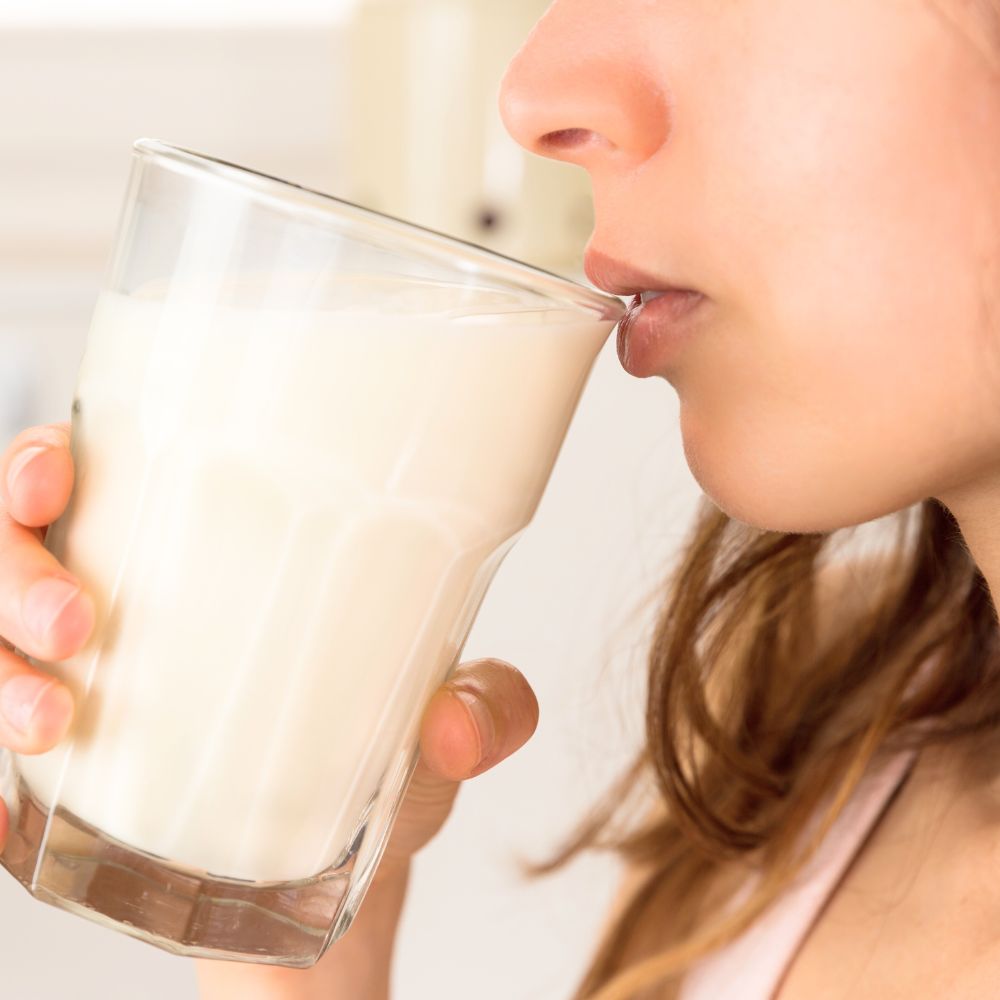In the world of fitness and nutrition, the debate of milk vs protein shakes has become common among those looking to boost their protein intake. Many wonder if milk can serve as an effective replacement for protein shakes. This article explores the nutritional benefits of milk, compares it directly to protein shakes, and helps you decide whether milk is a suitable alternative for your protein needs.
The Nutritional Profile of Milk
Milk is a nutrient-rich beverage with a several health benefits. Here’s a breakdown of its key components:
1. Protein Content
Milk contains about 8 grams of protein per 8-ounce serving. This protein is of high quality, providing all essential amino acids needed for muscle repair and growth. While this is lower than many protein shakes, the protein in milk is still beneficial for muscle recovery.
2. Vitamins and Minerals
A few key nutrients that are found in milk are as follows:
- Calcium: Important for bone health and muscle function.
- Vitamin D: Supports calcium absorption and bone health.
- B Vitamins: Important for energy metabolism.
3. Carbohydrates
Milk contains lactose, a natural sugar, which provides carbohydrates. This can be beneficial for replenishing glycogen stores after exercise.
4. Fats
The fat content of milk can vary depending on the type (whole, 2%, skim). Whole milk offers more calories and fats, which can be advantageous for those looking to increase their caloric intake.
Comparing Milk and Protein Shakes
While milk has several nutritional benefits, there are important differences to consider when comparing it to protein shakes.
1. Protein Concentration
Protein shakes often contain 20 to 30 grams of protein per serving, significantly more than milk. For those looking to increase their protein intake quickly, shakes may be more effective.
2. Convenience
Protein shakes are typically easier to prepare and can be more portable. They are often designed for quick consumption, making them ideal for post-workout nutrition.
3. Customization
Protein shakes can be customized with various ingredients, including fruits, vegetables, and additional supplements, allowing for a tailored nutritional profile. Milk is less versatile in this regard.
4. Calories and Sugar
Milk contains natural sugars (lactose), which can contribute to overall calorie intake. For those watching their sugar consumption, it’s essential to consider the total carbohydrate content when using milk as a replacement.
When to Use Milk as a Protein Source
Milk can be a great addition to your diet in several scenarios:
1. As a Snack or Meal Addition
Adding milk to smoothies, oatmeal, or protein-rich snacks can enhance the overall protein content without relying solely on protein shakes.
2. For Post-Workout Recovery
While it may not replace protein shakes entirely, consuming milk after a workout can provide protein and carbohydrates to aid recovery.
3. For Those Seeking Whole Food Options
If you prefer whole food sources over processed supplements, milk can serve as a natural protein source that offers additional nutrients.
Milk vs. Protein Shakes: Nutritional Breakdown
| Feature | Milk | Protein Shakes |
|---|---|---|
| Protein Content | ~8g per 8 oz, high-quality complete protein | 20-30g per serving, higher protein concentration |
| Vitamins & Minerals | Rich in calcium, vitamin D, B vitamins | Varies by product; often fortified or added supplements |
| Carbohydrates | Contains natural lactose sugar | Usually low-carb or customizable |
| Fats | Varies by type (skim to whole milk) | Usually low fat, but can vary |
| Convenience | Readily available but less portable | Quick to prepare, highly portable |
| Customization | Limited | Highly customizable with add-ins |
| Ideal Use | Whole-food snack, meal addition, post-workout recovery | Quick, high-protein boost, post-workout fueling |
Conclusion
When considering milk vs protein shakes, it’s clear that milk can be a nutritious and beneficial addition to your diet, but it may not fully replace protein shakes for everyone. If your primary goal is to maximize protein intake efficiently and conveniently, protein shakes might be the better option. However, for those seeking a versatile and nutrient-dense beverage, milk can complement your protein needs. Ultimately, the best choice depends on your individual goals, dietary preferences, and lifestyle. Adding milk alongside protein shakes to your regimen can help you meet your protein needs and advance your fitness journey.
Frequently Asked Questions (FAQ)
Milk provides high-quality protein but in smaller amounts than most protein shakes. For maximum muscle growth, shakes often offer more concentrated protein, so milk alone may not fully replace them.
Yes, milk contains both protein and carbohydrates, which can help replenish energy stores and aid muscle recovery after exercise, making it a suitable post-workout drink.
An 8-ounce serving of milk has about 8 grams of protein, whereas protein shakes typically contain 20 to 30 grams per serving, offering a higher protein concentration.
Milk contains natural sugars (lactose) and fats (depending on type), which may not suit everyone’s dietary needs. Protein shakes can be lower in sugar and fat and more customizable.
Absolutely! Using milk as a base for your protein shakes can add extra nutrients, taste, and calories, helping optimize your protein intake and support your fitness goals.

